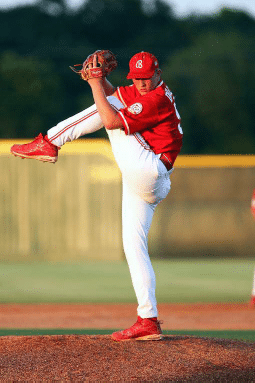
Little league shoulder is a condition in which the growth plate at the shoulder is injured from the repetitive torsional stress of throwing. This stress causes widening and damage to the growth plate, resulting in pain and swelling at the shoulder.
If left untreated, the condition can worsen and lead to bone damage and early growth plate closure. It commonly occurs in youth overhand pitchers between ages 10-16.
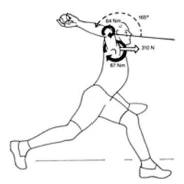
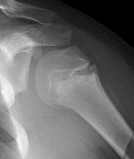
Little league shoulder occurs from repeated over-head throwing without proper rest, pitching and throwing with improper mechanics, playing on multiple teams with overlapping seasons, playing year-round baseball without an offseason, and not following limits for pitch counts and days rest.
Patients report a gradually increasing onset of pain and stiffness in the shoulder, particularly with throwing. Eventually, the child will experience a decrease in throwing velocity and accuracy.
Typically, Little League Shoulder does not cause permanent damage. If caught early enough and treated properly by an orthopaedic physician, Little League Shoulder will heal completely.
Treatment for Little League shoulder is completely stopping any throwing activity. Up to 3 months of rest may be necessary for complete healing. A return to throwing program may be instituted when the shoulder is healed. Biomechanical analysis of pitching can also be helpful.
Your doctor diagnoses Little League Shoulder based on your symptoms, clinical examination, and x-rays. X-rays may be ordered by your doctor to confirm the diagnosis or to exclude other problems.
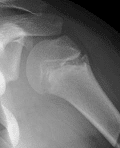
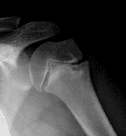
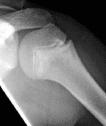
Watch for fatigue (eg, decreased ball velocity, decreased accuracy, upright trunk during pitching, dropped elbow during pitching, or increased time between pitches). If a youth pitch-er complains of fatigue or looks fatigued, rest is recommended.
Make sure to have an off season. No overhead throwing of any kind for 4 months a year. No competitive baseball pitching for at least 4 months per year.
Do not pitch more than 100 innings in games in any calendar year.
Follow limits for pitch counts and days rest.
Avoid pitching on multiple teams with overlapping seasons.
Learn good throwing mechanics as soon as possible. The first steps should be basic throwing, fastball pitching and changeup pitching.
Avoid using radar guns.
A pitcher should not also be a catcher for his team. The pitcher-catcher combination results in many throws and may increase the risk of injury.
If a player complains of pain in his elbow or shoulder, discontinue pitching until evaluated by a sports medicine physician.
Inspire youth player to have fun playing baseball and other sports!